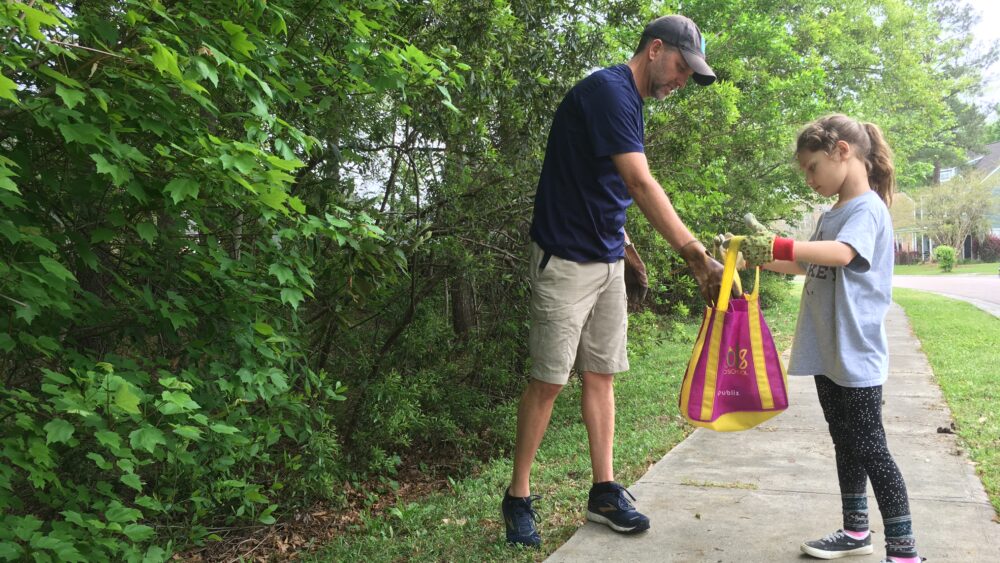As we look back on the month of April, we are feeling especially thankful for all of you. Last month, we challenged you to step up and participate in our #SoloSweepChallenge, a month-long challenge to celebrate the 50th Anniversary of Earth Day with continued litter pick-ups while social distancing. You went above and beyond. In just one month, 100 new members joined the app and 210 observations were made resulting in over 30,000 pieces of litter logged into the Litter-free Digital Journal, a project within the South Carolina Aquarium Citizen Science app! We would like to give a special shout out to Howard Hogue, aka Beach Santa, who logged almost 12,000 pieces himself during the Solo Sweep Challenge. This is a huge step forward in our #MarchtoaMillion, our goal of removing a million pieces of debris from the environment.
This is proof that good things can come out of tough times. COVID-19 disrupted traditional community sweeps, so we had to transition the typical model to one that took into consideration safe social distancing practices, and solo sweeps were born. Thank you so much to everyone who participated and did their part to safely make their local community a better place.
Just because the challenge is over doesn’t mean you have to stop your sweeps! We are on track on the #MarchtoaMillion, and there is still plenty of work that needs to be done. If you’ve been walking or driving around your community, you’ve probably noticed lots of litter showing up on the roadways. In addition to there being more single-use plastics in use every day from increased restaurant take out, grocery store delivery and online shopping, you may have noticed a new type of litter, medical waste. Medical waste like masks, gloves and wipes are a growing environmental hazard as they are showing up as litter in parking lots and along roadways. Much of the items are made of plastic and when in the natural environment, can enter waterways and breakdown into microplastics. They are intended to help us fight a public health challenge, but are becoming a plastic pollution problem. It’s important that anyone doing litter sweeps wear gloves while handling all types of litter including medical waste, dispose of the debris in a secure trash bag (not recycling) to keep risk low for sanitation workers, and wash hands thoroughly when the task is done.
Earth Month and the Solo Sweep Challenge may be finished, but we encourage you to incorporate litter sweeps into your weekly routine. You can continue participating in conservation and helping your community by downloading the South Carolina Aquarium Citizen Science app and joining the Litter-free Digital Journal project.


